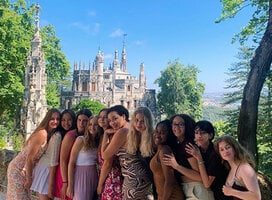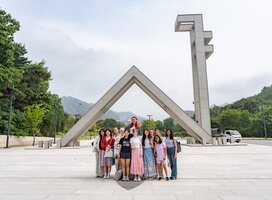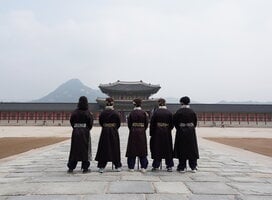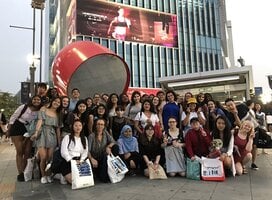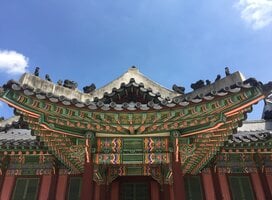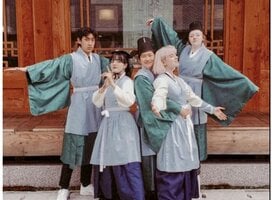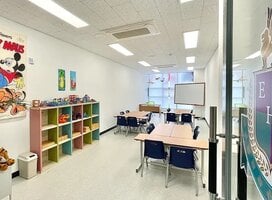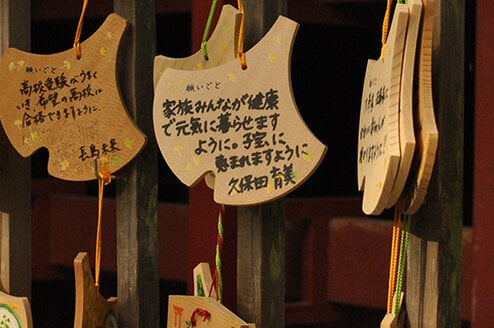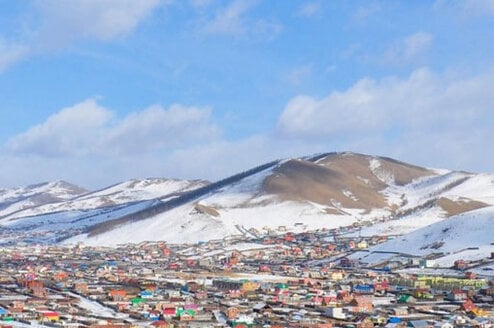High School Abroad in South Korea
Delicious Korean BBQ, bustling city life in Seoul, and beautiful mountain hikes are a few reasons to inspire you to spend time overseas in South Korea while you're in high school.
Live with a host family for a summer, semester, or a year and enroll in a direct exchange program to become fully immersed while perfecting your language skills. Rather than just reading about the history of South Korea in a textbook, you'll participate in experiential learning opportunities by visiting historical sites around the country.
South Korea is best for students who want to learn and practice Korean, learn about 5000 year old traditions firsthand, and crave to live abroad somewhere with both amazing cities and landscapes alike.
If you're interested in spending time abroad in New Zealand while in high school, you can choose from:
- A semester, or full year exchange
- Cultural immersion
- Summer language immersion
A semester, or full year exchange
Spend part of high school abroad enrolled in a local school, where you'll take classes alongside South Korean students. You'll live with a host family, which will enable you to become fully immersed in the culture through home cooked meals, language practice, and excursions throughout the country.
Cultural immersion
Students interested in peace and conflict resolution can study abroad in South Korea for one month over the summer, where they will focus heavily on the country's sociopolitical development. During the program, students will engage with professionals such as historians and economists.
Summer language immersion
Open to all language levels, students eager to practice Korean can do so while living with a Korean family for a few weeks over the summer. Like semester and full year programs, students who participate in a summer program will also get to learn about the history of Korea on education excursions.
Popular Cities
- Seoul: the capitol, filled with temples, technology, and pop culture
- Busan: a coastal city with beautiful beaches and mountains
- Gwangju: art, music, culture hub
- Jeonju: cultural festivals, historical buildings, and sports
Visas
Students may enter South Korea for up to 90 days without the need to acquire a visa. Participants on longer term programs, such as semester or year exchanges will need a visa, but program providers will assist students with this process.
Housing
All students will be placed with host families during the time abroad in South Korea. Local housing varies depending on host family availability and program.
Costs
The official currency in South Korea is the Won. Street food can cost between 1000–5000 won, which is roughly $1-5 USD, should students decide to eat out while walking around the city.
The average summer abroad in South Korea costs between $2,945 and $5,800. Students eager to enroll in exchange programs can plan to spend $11,995 for a semester, or $15,995 for a year. Some program costs include airfare, and all of them include meals with host families, as well as program excursions.
Packing Tips
South Korea experiences four distinct seasons, similar to that of the east coast in the United States. That being said, winters do get quite cold in the winter, ranging on average below 30° Fahrenheit. Spring, fall, and summer are temperate, with averages in the 60s and 70s.
With this seasonal weather in mind, we recommend packing the following:
- Warm layers for winter, including hat, gloves, and a thick jacket
- A light jacket for nighttime in the fall, spring, and summer
- Sneakers for hikes
- A few nice outfits and dress shoes
- Feminine hygiene products
- 220v power, plugs C and F
Health
Prior to entering South Korea, it is recommended that travelers get vaccinated for Japanese encephalitis, Rabies, Tuberculosis, Cholera, Hepatitis A and B, and Typhoid.
Safety
South Korea is at a lower risk for typhoons than some of its neighboring countries, but in case of emergency, overseas staff are readily available to ensure student safety.
In general though, South Korea is extremely safe for travelers. Like many places around the world, petty-theft and pickpocketing sometimes occurs, so we recommend that students take normal precautions, travel with hidden money belts, and make copies of all important documents such as passport, visa, and credit cards.

